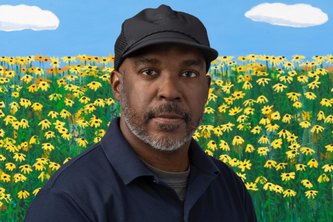
An estimated 44 million Americans are caring for a family member 50 years of age or older, and a recent study found family caregivers spend an average of 24 hours a week for more than four years helping with everything from getting their loved one in and out of bed to assisting with bathing. Many also hold down jobs and run households.
The University of Minnesota’s Joseph Gaugler is at the forefront of growing concern about the psychological, economic, and physical toll all that takes on caregivers. Gaugler, the Robert L. Kane Endowed Chair in Long-Term Care and Aging in the School of Public Health, leads a team of 10 that’s generating scientific knowledge to help caregivers and, in turn, the people they care for.
Gaugler first discovered the demands of caregiving as part of a summer internship, when he accompanied a social worker on a home visit to a woman caring for her husband, who had Alzheimer’s disease.
“I saw firsthand what her experience was like,” Gaugler says, “trying to do everything she could to maintain the quality of life of her husband.”
When Gaugler arrived at the University of Minnesota in 2005, he soon realized he’d need to connect with family caregivers in order to study them. That led to the idea of a conference for caregivers that would include basic educational sessions. The conference now attracts about 300 people, two-thirds of whom are family caregivers. Gaugler invites those families to participate in scientifically designed studies.
He also looks to technology to solve problems faced by caregivers and the aging, and his team is studying whether placing motion sensors in the home of someone with memory problems might enable that person to stay at home longer.
Gaugler, who previously held the U’s Long-Term Care Professorship in Nursing, sees his efforts to engage with family caregivers as his way of staying grounded in the real-world needs of real people. “I feel like I know these families,” he says, “and I care deeply about them.”
- Categories:
- Campus Affairs





